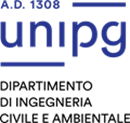Study-unit CHEMICAL AND BIOLOGICAL SUSTAINABLE PROCESSES
| Course name | Sustainable materials and processes engineering |
|---|---|
| Study-unit Code | A002454 |
| Curriculum | Processi sostenibili |
| Lecturer | Stefano Falcinelli |
| CFU | 12 |
| Course Regulation | Coorte 2023 |
| Supplied | 2024/25 |
| Type of study-unit | Obbligatorio (Required) |
| Type of learning activities | Attività formativa integrata |
| Partition |
SUSTAINABLE BIOLOGICAL PROCESSES
| Code | A002456 |
|---|---|
| CFU | 6 |
| Lecturer | Giovanni Gigliotti |
| Lecturers |
|
| Hours |
|
| Learning activities | Affine/integrativa |
| Area | Attività formative affini o integrative |
| Sector | AGR/13 |
| Type of study-unit | Obbligatorio (Required) |
SUSTAINABLE CHEMICAL PROCESSES
| Code | A002455 |
|---|---|
| CFU | 6 |
| Lecturer | Stefano Falcinelli |
| Lecturers |
|
| Hours |
|
| Learning activities | Caratterizzante |
| Area | Chimica e fisica della materia |
| Sector | CHIM/07 |
| Type of study-unit | Obbligatorio (Required) |
| Language of instruction | ITALIAN |
| Contents | ELEMENTS of THERMODYNAMICS. ELEMENTS of CHEMICAL KINETICS. FUNDAMENTALS. MECHANISMS AND KINETICS OF CATALYTIC REACTIONS. DIFFUSION AND REACTION KINETICS. INDUSTRIAL CHEMISTRY, CATALYSIS AND GREEN CHEMISTRY. LABORATORY CHEMICAL REACTORS. INDUSTRIAL CHEMICAL REACTORS. INDUSTRIAL CHEMICAL PROCESSES. |
| Reference texts | Didactic material provided by the teacher. - G. Natta, I. Pasquon, Principi della Chimica Industriale, Vol. 1, Città Studi, Milano (1993). - G. Natta, I. Pasquon, P. Centola, Principi della Chimica Industriale, Vol. 2, Catalisi e cinetica applicata alle reazioni dell’industria chimica, CLUP, Milano (1978). - O. Levenspiel, Ingegneria delle reazioni chimiche, Casa Editrice Ambrosiana (1978). - H. Scott Fogler, Elements of Chemical Reaction Engineering, Pearson International Edition (2014). |
| Educational objectives | The aim of the course is to provide the student with scientific and engineering knowledge necessary for the understanding, analysis and design of industrial chemical processes in a sustainable and circular economy scheme. The first part of the course is dedicated to learning and to the application of the fundamental laws of thermodynamics and chemical kinetics, for a proper understanding of heterogeneous catalytic phenomena. The second part is devoted to the study of transport phenomena of matter and energy, useful for understanding the working conditions of different types of industrial chemical reactors. In the final part, the course provides an overview of the main industrial sustainable processes through the study of the most recent innovative technologies in the production of hydrogen, ammonia and in carbon dioxide conversion into fuels in a circular economy scheme. |
| Prerequisites | Basics of the chemistry course. |
| Teaching methods | The course is organized as follow: - Lectures on all subjects of the course; - Classroom exercises aimed for a correct application of the concepts developed for the resolution of numerical exercises and problems of practical application. During the course the student is encouraged to work in a quantitative way over all the studied phenomena, using appropriately the involved physical and chemical quantities. This is done through theoretical frontal lessons and carrying out practical laboratory demonstrations and guided visits to prototype and industrial reactors. |
| Other information | Frontal lessons: three/four weekly hours. Tutorial discussions with experimental demonstrations in laboratory and numerical exercises. Guided tours to chemical industries of interest can be organized. The timetable and Classroom can be downloaded at the following Web address: http://www.ing1.unipg.it/didattica/studiare/orario-delle-lezioni |
| Learning verification modality | The exam consists of a written test and an oral test. The written test consists of the solution of 4-5 problems/multiple choice tests and/or 1-2 short compositions. The test has a duration of 1 hour and 30 minutes and is designed to evaluate tha ability to correctly apply the theoretical knowledge, the understanding of the proposed issues, and the ability to communicate in written form. The oral test consists on an interview of about 20-30 minutes long. |
| Extended program | ELEMENTS of THERMODYNAMICS: Fundamentals. Thermodynamic equilibrium and chemical reactions. Multiple equilibria. The phase rule. The yield of chemical reactions: dependence on T and P. Thermodynamics analysis of industrial processes. ELEMENTS of CHEMICAL KINETICS: Fundamentals of chemical kinetics. Reaction kinetics and mechanisms. Differential and integral kinetic equations. Activation energy: the Arrhenius law. The compensation effect. FUNDAMENTALS of CATALYSIS: Structure and chemical properties of catalysts: homogeneous, heterogeneous and enzymatic catalysis. Bulk and supported catalysts. Redox and acid-base catalysis. MECHANISMS and KINETICS of CATALYTIC REACTIONS: Contact time and residence time. Reaction rate. Kinetics in closed and stationary systems. Consecutive reactions and rate-determining step. Reversible catalytic reactions. Kinetic modeling. The Principle of Microscopic Reversibility. Typical parameters of heterogeneous catalytic processes: conversion, selectivity, yield and reaction rate. DIFFUSION AND REACTION KINETICS: Deviation from the ideality of industrial reactors. Theoretical principles of the diffusion of matter and energy. Diffusion phenomena in industrial chemical reactors. INDUSTRIAL CHEMISTRY, CATALYSIS AND GREEN CHEMISTRY: The role of Catalysis in Industrial chemistry. The Green Chemistry. LABORATORY CHEMICAL REACTORS: Batch and Continuous Reactors. INDUSTRIAL CHEMICAL REACTORS: Generalities and classification. Discontinuous and continuous reactors. INDUSTRIAL CHEMICAL PROCESSES for the production of hydrogen and syngas, for the synthesis of ammonia and for the conversion of carbon dioxide into fuels through sustainable processes in a circular economy scheme. |
| Obiettivi Agenda 2030 per lo sviluppo sostenibile | Health and wellness. Quality education. Clean and accessible energy. |


